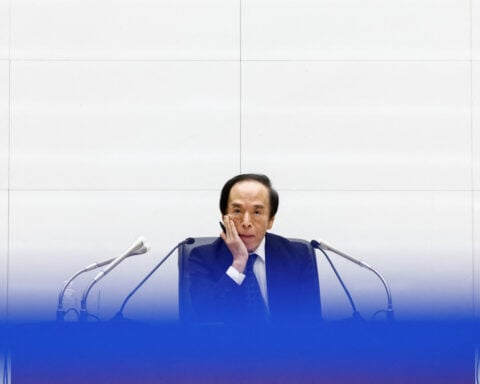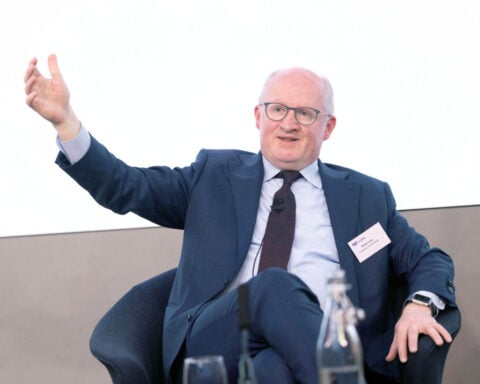By Supantha Mukherjee
STOCKHOLM (Reuters) -Spotify's quarterly gross profit topped 1 billion euros ($1.1 billion) for the first time after it reined in marketing spending, although that meant the music streaming giant missed its forecast for monthly active users.
The Swedish company has been growing its user base for years by offering promotions and investing in podcasts and audiobooks. But since last year it started to cut costs, including through layoffs and its marketing budget, to boost margins and profits.
Spotify shares, which initially fell on the quarter results, reversed course to rise 8% in premarket trading on Tuesday.
"We are going to add back some marketing spend over the year," CEO Daniel Ek said in an interview. "Because we want to keep on having the growth and we saw that in some territories, we may have pulled back a little bit too much."
Gross margins rose to 27.6% in the quarter from 25.2% a year earlier, helped partly by profits in its podcast business.
Spotify invested over a billion euros to build up its podcast business, including spending hundreds of millions for popular shows such as the "The Joe Rogan Experience".
"It (podcasting) was a drag last year. Now it is another profit center for us," Ek said.
The company's quarterly revenue rose 20% to 3.64 billion euros, beating estimates of 3.61 billion euros.
Spotify has raised prices to boost revenue and experimented with different subscription plans.
"We are also going to add a music-only tier for those consumers that only care about the music side," Ek said.
First-quarter monthly active users (MAUs) rose 19% to 615 million, but missed Spotify's own guidance and analysts' median estimate of 618 million.
The company forecast MAUs at 631 million for the second quarter, below analysts' estimate of 636.3 million, according to IBES data from LSEG. It also said gross margin should rise to 28.1% this quarter.
Premium subscribers rose by 14% in the first quarter to 239 million, in line with estimates.
($1 = 0.9375 euros)
(Reporting by Supantha Mukherjee in Stockholm; Editing by David Evans and Mark Potter)

 Biden promised to turn the page on Trump. Now he's being replaced by him
Biden promised to turn the page on Trump. Now he's being replaced by him
 Firefighters prepare for increasing gusts following brief reprieve for LA area
Firefighters prepare for increasing gusts following brief reprieve for LA area
 John Ratcliffe, tapped by Trump to lead the CIA, will face questioning in the Senate
John Ratcliffe, tapped by Trump to lead the CIA, will face questioning in the Senate
 Nippon Steel wants to work with Trump administration on US Steel deal, Mori tells WSJ
Nippon Steel wants to work with Trump administration on US Steel deal, Mori tells WSJ
 After cable damage, Taiwan to step up surveillance of flag of convenience ships
After cable damage, Taiwan to step up surveillance of flag of convenience ships
 BOJ will raise rates if economy, price conditions continue to improve, Ueda says
BOJ will raise rates if economy, price conditions continue to improve, Ueda says
 Manatees congregate in warm waters near power plants as US winter storms graze Florida
Manatees congregate in warm waters near power plants as US winter storms graze Florida
 AAPI adults prioritize immigration, but split on mass deportations: AP-NORC/AAPI Data poll
AAPI adults prioritize immigration, but split on mass deportations: AP-NORC/AAPI Data poll
 As Los Angeles burns, Hollywood's Oscar season turns into a pledge drive
As Los Angeles burns, Hollywood's Oscar season turns into a pledge drive
 As fires ravage Los Angeles, Tiger Woods isn't sure what will happen with Riviera tournament
As fires ravage Los Angeles, Tiger Woods isn't sure what will happen with Riviera tournament
 Antetokounmpo gets 50th career triple-double as Bucks win 130-115 to end Kings' 7-game win streak
Antetokounmpo gets 50th career triple-double as Bucks win 130-115 to end Kings' 7-game win streak








